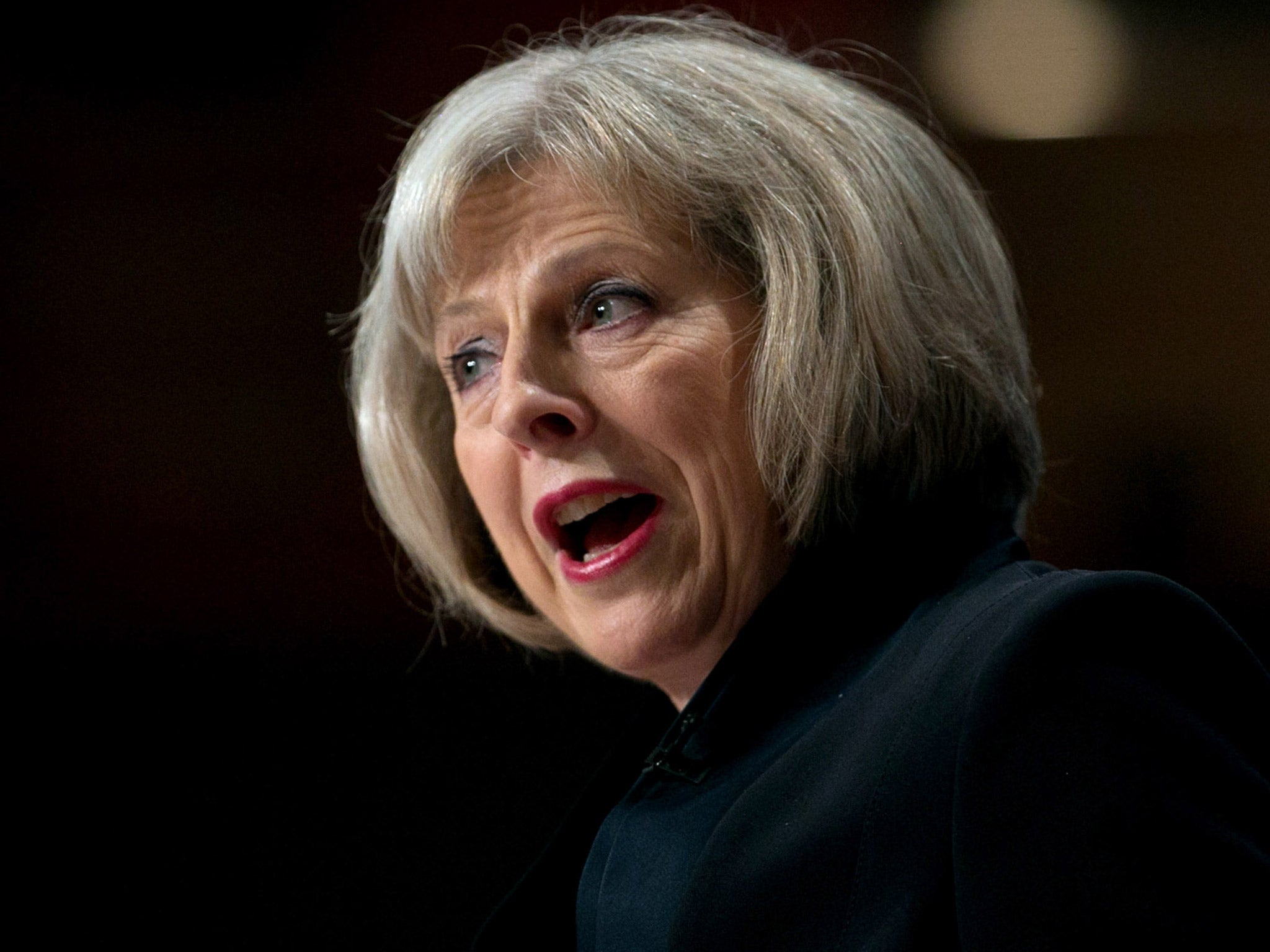Police banned from using anti-terror laws to monitor journalists' phones
Theresa May announces new Ripa code of practice

Your support helps us to tell the story
From reproductive rights to climate change to Big Tech, The Independent is on the ground when the story is developing. Whether it's investigating the financials of Elon Musk's pro-Trump PAC or producing our latest documentary, 'The A Word', which shines a light on the American women fighting for reproductive rights, we know how important it is to parse out the facts from the messaging.
At such a critical moment in US history, we need reporters on the ground. Your donation allows us to keep sending journalists to speak to both sides of the story.
The Independent is trusted by Americans across the entire political spectrum. And unlike many other quality news outlets, we choose not to lock Americans out of our reporting and analysis with paywalls. We believe quality journalism should be available to everyone, paid for by those who can afford it.
Your support makes all the difference.Police will be banned from using anti-terrorism powers to monitor journalists’ telephones under plans to be detailed today by Theresa May.
The Home Secretary will also announce moves to impose limits on the period for which suspects can be released on bail before they are charged.
Her intervention over police powers comes after it emerged that officers twice invoked the Regulation of Investigatory Powers Act 2000 (Ripa) to access the phone logs of reporters to identify the sources of stories.
Under a new code of practice to be published within weeks, officers will have to demonstrate they are investigating a serious crime and may have to get permission for the move from a judge.
In a speech to a College of Policing conference, Mrs May will say: “Where the police hold sensitive powers, they must be used appropriately.”
She will say: “I am already aware there have been concerns over the use of Ripa to access journalists’ phone records and that is why we are revising the relevant code to make clear that specific consideration must be given to communications data requests involving those in sensitive professions, such as journalists.”
She will also disclose that the College is to investigate whether a statutory time limit is needed on pre-charge bail to “prevent people spending months or even years on bail only for no charges to be brought”.
A freedom of information request last year revealed that 3,000 of those on bail at the time had been bailed for more than six months.
The issue was highlighted last week when the broadcaster Paul Gambaccini was exonerated over allegations of historic sexual abuse after spending almost a year on bail.